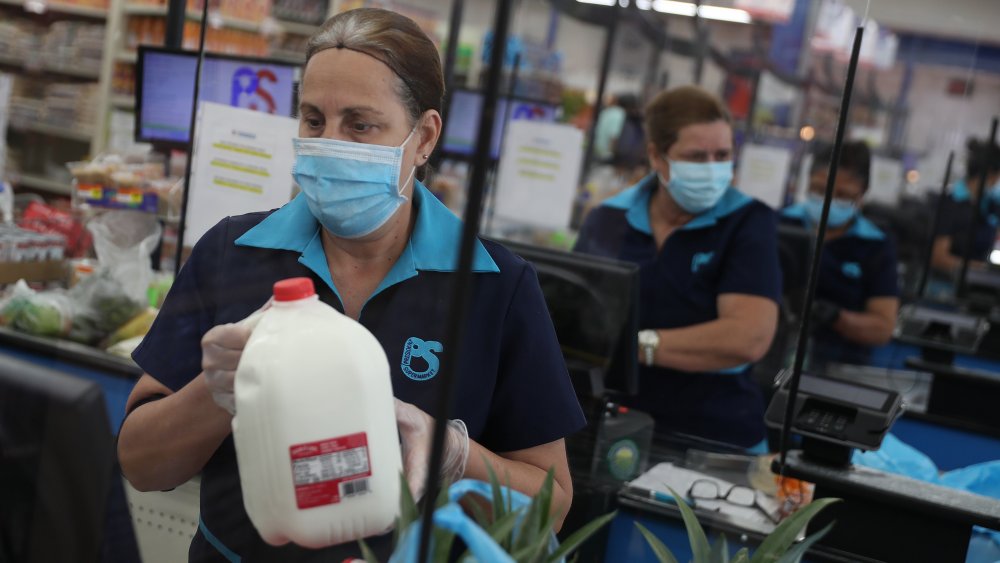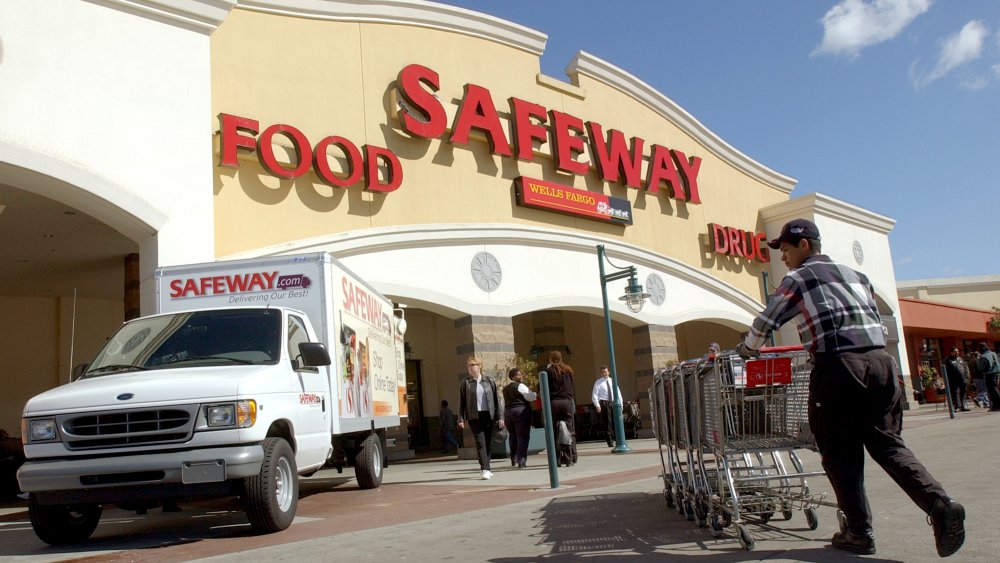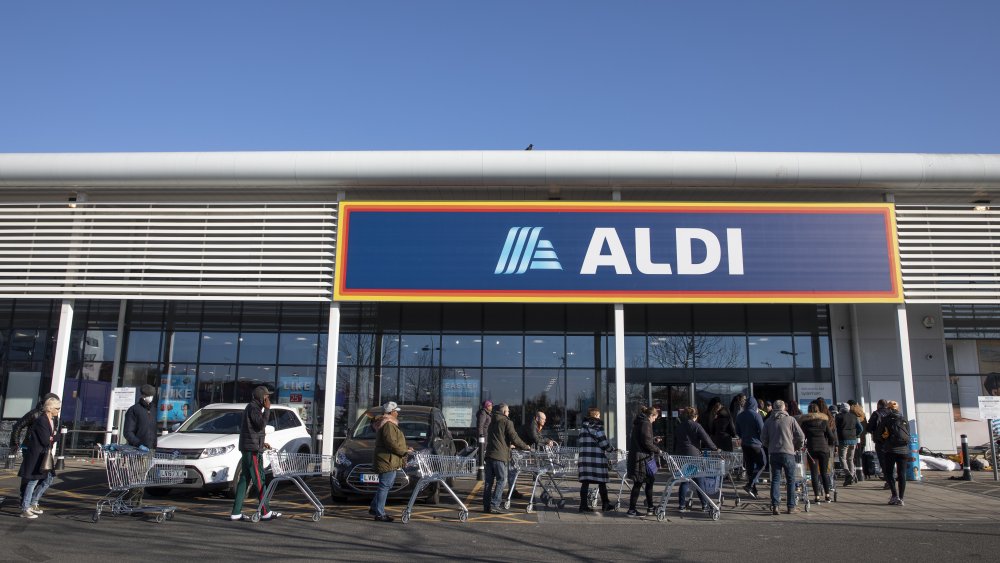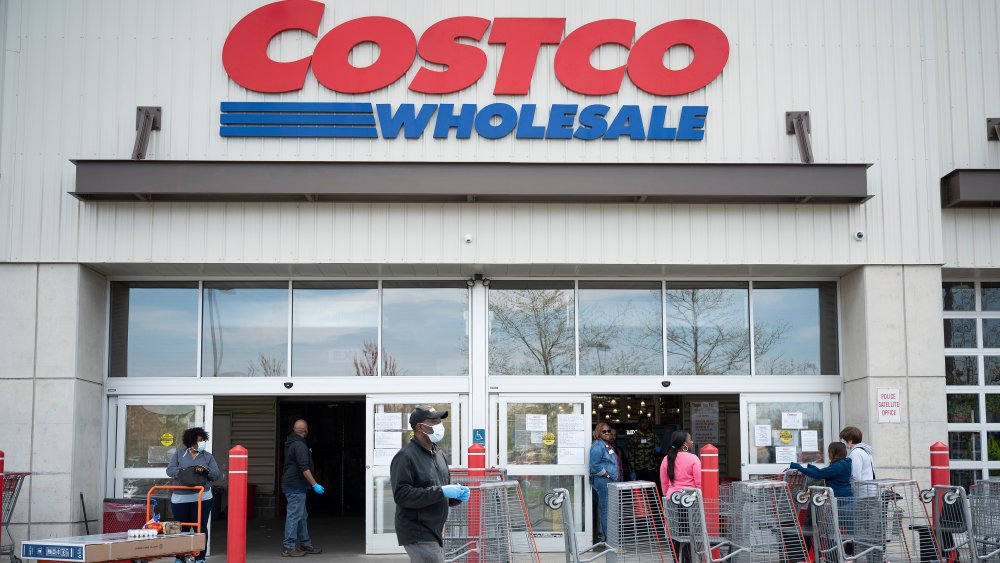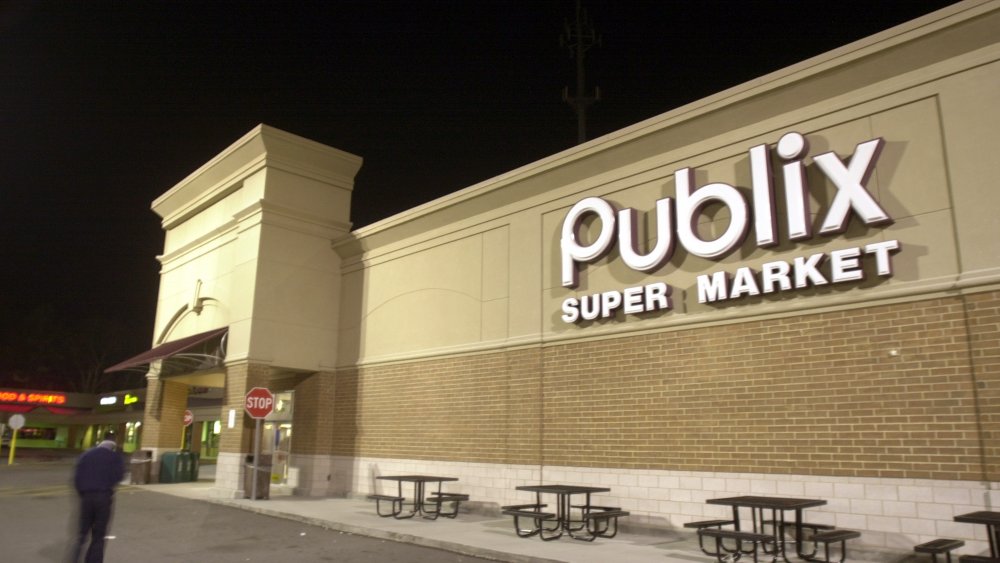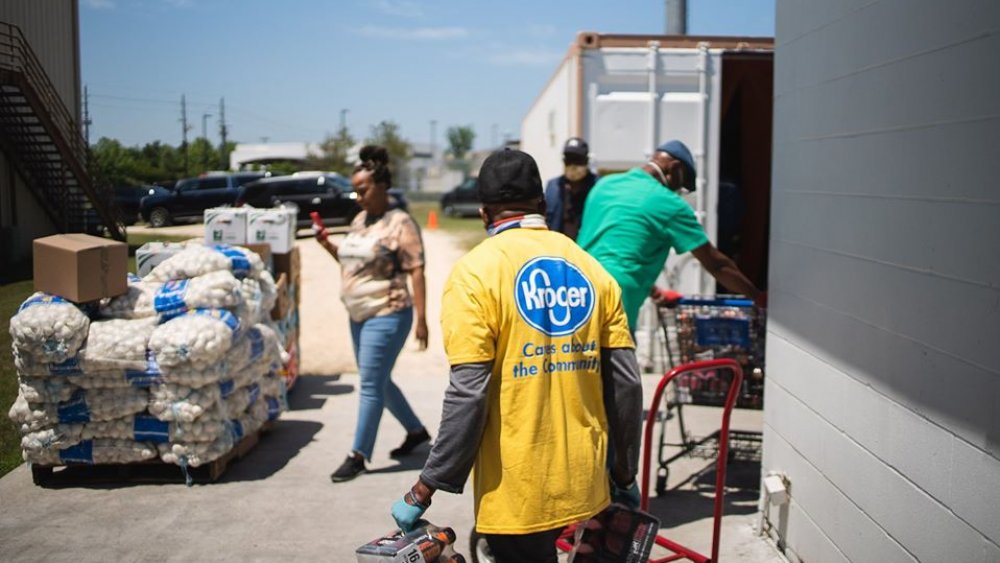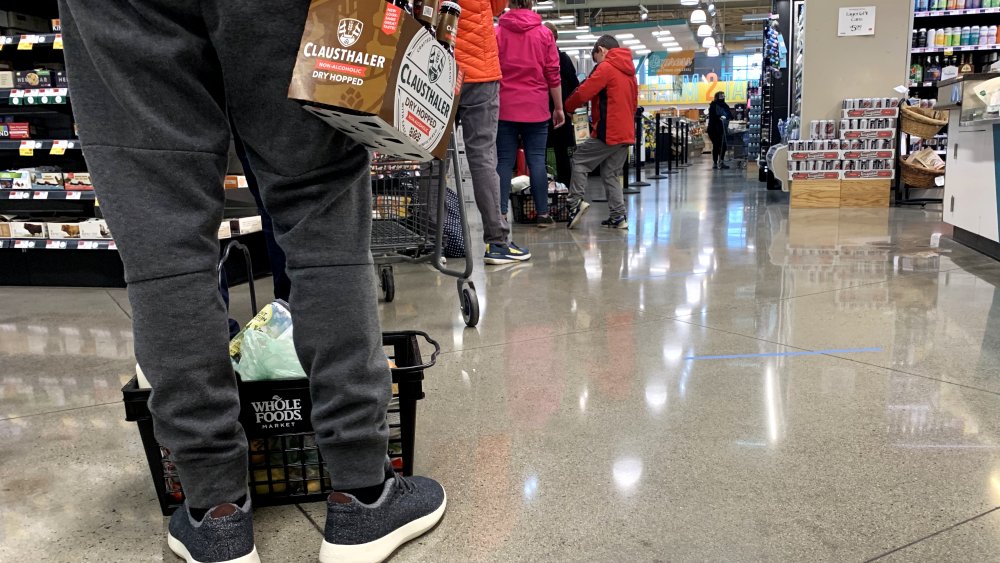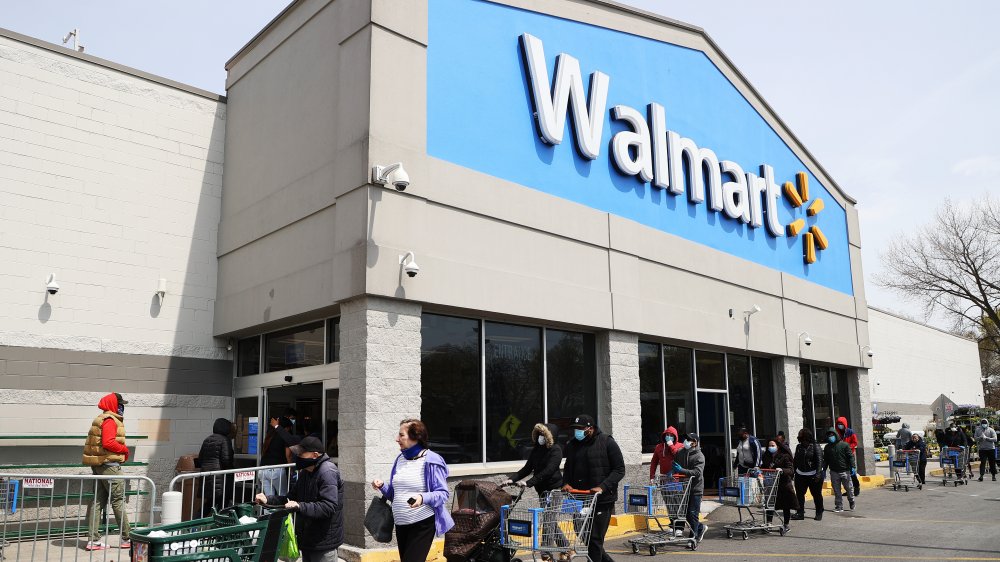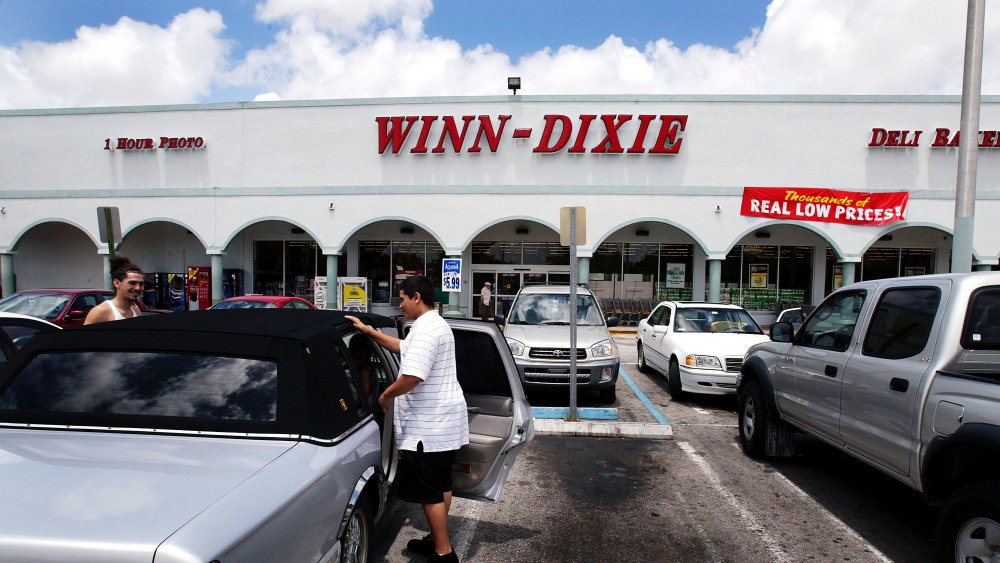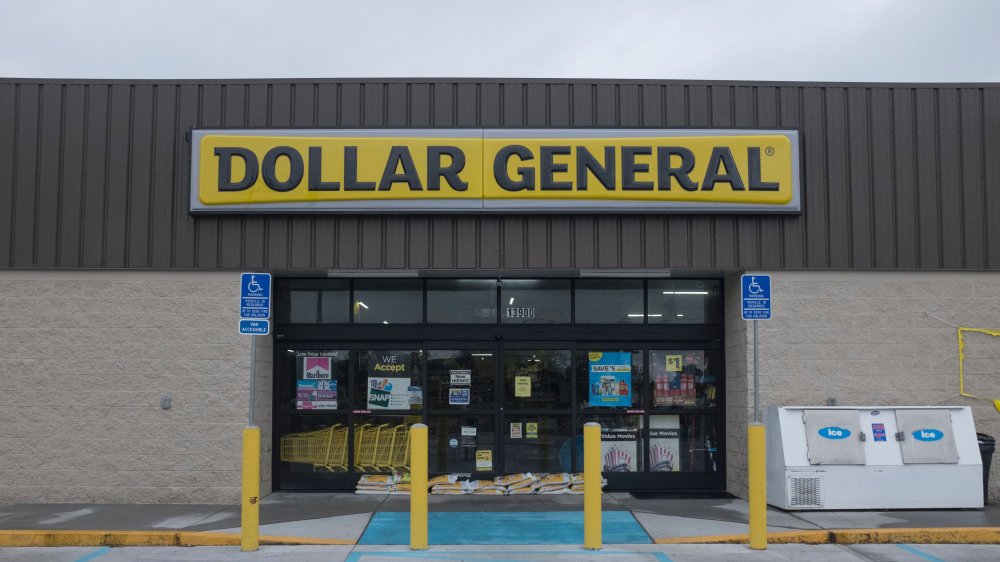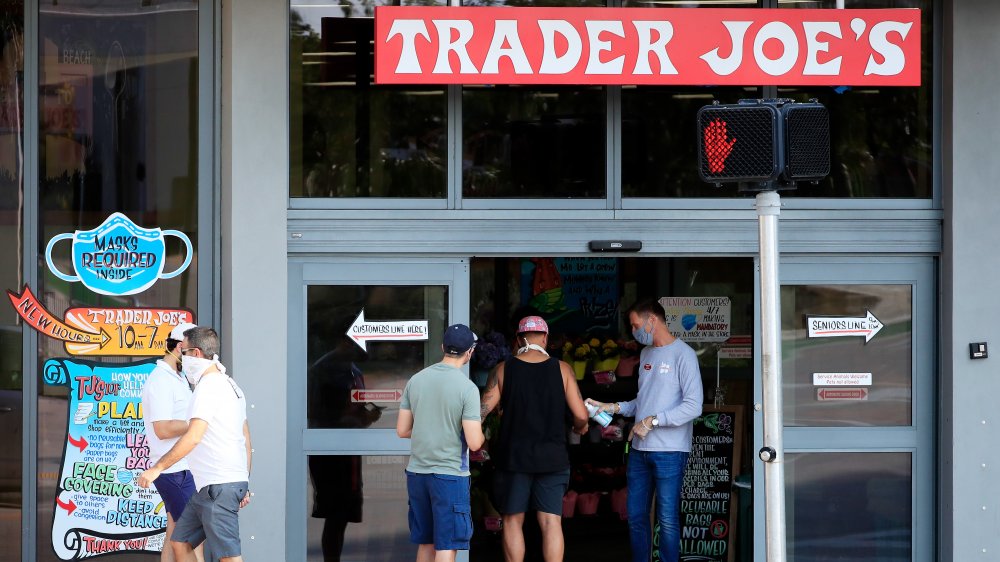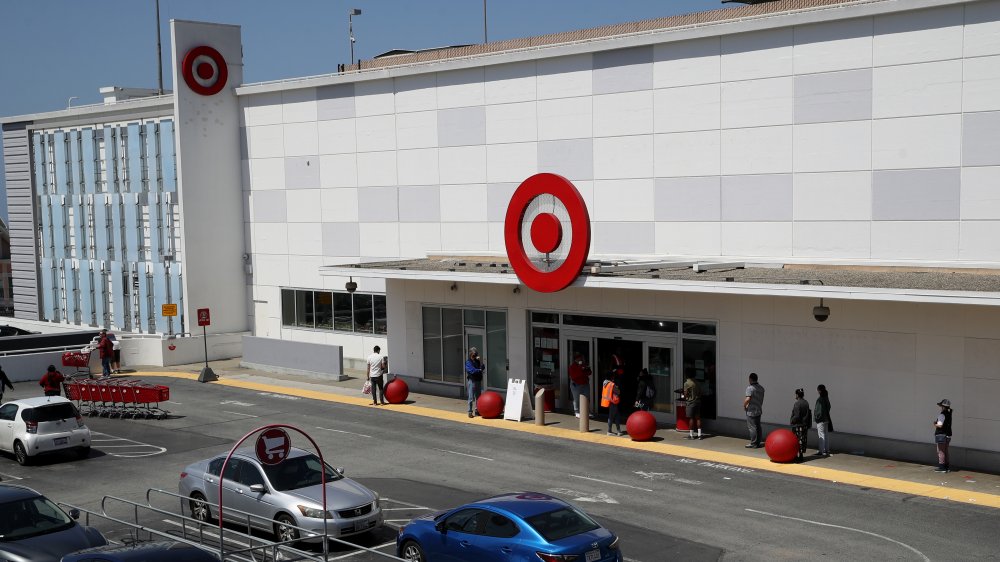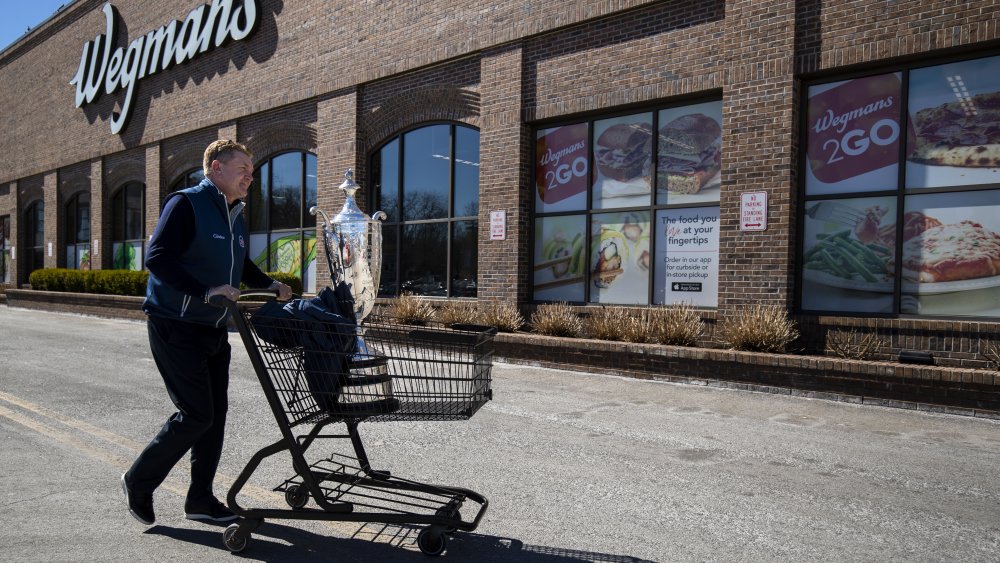How Grocery Chains Are Really Treating Their Workers During The Pandemic
Grocery shopping doesn't normally feel like a risky errand, but it's certainly become that way with the coronavirus pandemic. While shoppers may only have to put themselves at risk for a few minutes, the employees who work at the grocery stores are coming into contact with hundreds of people every on every shift.
This has, unfortunately, resulted in grocery workers at nearly every major grocery chain testing positive for COVID-19 and in some cases, even dying. Grocery stores are one of the most essential businesses in every community, however, and many people simply don't have the option of staying home and not collecting a paycheck.
Grocery stores have put into place safety measures to protect their employees, and many have also offered some form of hazard pay. Unfortunately, in the opinions of many grocery store workers, enforcement of these safety measures has been pretty lax, and employees seem to be increasingly fearful of getting sick.
This is how these grocery chains are really treating their workers during the pandemic.
Albertsons and Safeway
Albertsons is one of the largest grocers in the United States and owns both Vons and Safeway grocery stores. Working at its grocery stores has proven to be challenging, to say the least, for its employees. The company did announce that it would be paying employees an extra $2 an hour, calling it "Appreciation Pay," but some employees feel it's hardly a substitute for the risk they face on a daily basis.
MaryAnn Fernandez, who works at an Idaho Albertson's, said many customers "think that everyone is overreacting" and ignore the social distancing guidelines (via Idaho Statesman).
Safeway has also been criticized for taking too long to put safety measures in place and been accused of doing so only after an employee died from coronavirus. "I might get in trouble for this... but [Safeway] hasn't really done anything," said a California distribution center employee who wished not to be identified. After a local news station ran the story, Safeway responded and said it would be taking the temperatures of more employees and providing them with masks and gloves.
Elaine Lyon, an employee at a Seattle Safeway expressed a similar opinion. "The plexiglass was put in in a month too late and in our store, it's literally three feet too short," she told Komo News.
Aldi
Like so many other grocery chains, Aldi has been hiring extra staff both in the United States and the United Kingdom to keep up with the heavy flow of shoppers (via Quartz). With these new positions, the company also put into place higher wages for all of its employees in the form of a temporary 10 percent pay increase.
In early April, the German-based grocery store announced that they'd be making some major changes to operations in order to keep customers and staff safe. The company said that in addition to securing gloves and face masks for its employees, it would be setting up plastic barriers at the cash register and no longer putting scanned items into a second shopping cart.
While these changes no doubt were made to put both customers and employees more at ease, they may have been made a few days too late. Aldi issued a statement regarding the safety measures on its website April 8, 11 days after an employee in Cleveland, Ohio tested positive for COVID-19 (though Aldi was quick to say the employee did not work in a store).
Costco
There's no denying that the coronavirus pandemic has been a moneymaker for Costco. According to MarketWatch, the bulk grocery and retail chain made $1.5 billion more in March 2020 than it did the previous year because so many shoppers flooded in to stock up on things like bread and toilet paper. Of course, those sales eventually fell once social distancing rules decreased the amount of customers in stores.
Costco's employees, however, seem to feel that the chain was slow to react and has been putting profit over protection. "They were reactionary the entire time instead of taking the opportunity to be a leader in the industry," a Michigan Costco manager told Buzzfeed News.
Employees also have raised criticisms that Costco took better steps at their locations in South Korea and China than they did in U.S. stores. "When you look at the Costcos in [South] Korea, they shut down the entire store and cleaned it," a California employee said in March. "We only shut down to control how many people were in the store. There hasn't been one deep cleaning."
Costco has given an extra $2 an hour to all of its employees, but they've also reportedly allowed as many as 3,500 people in the store at a time without any sort of mask requirement. Like so many other grocery stores, Costco has had employees test positive and die from COVID-19 complications.
Publix
Publix announced in early April that it would allow its employees to wear gloves and masks. However, they added that they would not be requiring or providing those masks, and could likely only provide gloves for the short term. "Inventory is already scarce, and we anticipate it to become even more limited in the very near future," a company statement said.
For some Publix employees, coming into work just isn't worth the risk. "I don't feel comfortable working until we have mandatory mask usage, limiting people in stores, and overnight shelf-stocking shifts," said an Atlanta employee. Other employees like Joshua Bellamy of Jupiter, Florida said he still enjoys the job."Even though we are in a crisis, there's a bit of normalcy here because we are still open for business," Bellamy said.
Publix employees who test positive for COVID-19 will receive 14 days of paid leave.
Unlike many other grocery chains, Publix hasn't put a storewide temporary wage increase into effect. The company did say, however, that they would be issuing permanent pay increases to all employees based on individual employee merit.
Kroger
Kroger, the largest grocery chain in the United States, issued a "Hero Bonus" to its employees with a $2 pay raise that, so far, extends to May 2 (via The Motley Fool). While that works out to an extra $80 a week for most employees on a 40-hour a week schedule, it also comes with what one might consider a joke of a company perk. As a showing of extra appreciation, Kroger is offering all employees 20-ounce bottles of Pepsi for just $1. Woo-hoo.
Pepsi discounts aside, Kroger is allowing all employees to wear masks and gloves and giving them access to their paychecks as early as a day after their shift. Any employee who is suffering symptoms of coronavirus also has the option of receiving two weeks of paid leave (via WABE).
Following the death of four Kroger employees in Michigan, the grocery store began limiting the number of customers in its stores and scaled back operating hours to allow for more cleaning. Other Kroger locations have transitioned to going "dark" and doing online orders only. Some 460,000 people work at Kroger and its sister stores Fred Meyer, King Soopers, Harris Teeter, Ralphs, and more.
Whole Foods
Whole Foods first acknowledged changes it would be making on March 13 and said it would be adding extra hand sanitizing stations in stores, ramping up cleaning schedules, hitting pause on food samples, and no longer allowing reusable containers at coffee and smoothie bars.
Three days later, Whole Foods rolled out what seems to be the grocery store standard $2 temporary pay increase and closed all of its hot food bars. The Amazon-owned grocery chain also began offering face masks and gloves to all employees at the start of their shift and said team members diagnosed with COVID-19 would get two weeks paid sick leave (via WABE).
Despite having shorter operating hours and limiting the number of customers allowed in stores, employees argue that the reality is different than the protocol outlined on the Whole Foods website. "I haven't felt safe going into work because Whole Foods hasn't really done anything to combat the amount of Amazon shoppers in the stores," a New York employee told The Guardian. "The store has been closing earlier, but they still want us to stay until 11 p.m. to clean, and we aren't trained to clean or given masks or anything."
A North Carolina employee said some stores are ignoring the customer limit recommendations and that it makes social distancing "almost impossible." These issues with others, like employees being asked to take unpaid sick leave, have led workers to plan a sickout protest on May 1.
Walmart
The country's largest retailer has followed a similar path of pandemic operations. Yes, it doubled down cleaning procedures, hired more workers to help with customer demand, and gave employees a pay bonus. Those operations were put in place by mid-March (via CNBC).
As the pandemic has worsened, Walmart has taken more heightened steps of precaution. The company began to explore rolling out one-way shopping aisles, limiting the number of customers in stores, and sending out infrared thermometers to its 5,355 Walmart and Sam's Clubs to screen its 1.4 million workers (via Chicago Tribune). Any employee with a temperature of over 100 degrees will also be sent home with pay for the day and forbidden from returning to work until being fever-free for three days.
A survey of Walmart workers, however, contradicts this and found that some employees said their managers had pressured sick employees to report to work (via Reveal). Some Walmarts have also been accused of ignoring customer limit guidelines. "We don't limit customers in our store," a Georgia Walmart worker said in late March. "There are hundreds in there at times. How do you keep a 6 ft rule with that amount of people?"
While wearing masks and gloves had previously been up to employee choice, Walmart said that starting April 20, doing so would be mandatory (via USA Today). Walmart's executive vice president had previously told The Chicago Tribune that it would need around 7 million masks a week.
Winn-Dixie
Winn-Dixie and its sister stores, BI-LO, Fresco y Más, and Harveys Supermarket made headlines when its parent company, Southeastern Grocers said it would pay for the groceries of healthcare workers as a gesture of gratitude (via Fox News). It also stepped up its hiring practices by rolling out some 5,000 jobs across its stores in the South.
The company announced that it would be conducting temperature checks, encouraging the wearing of gloves and masks, and giving weekly bonuses to its 45,000 employees. The grocery stores also closed on Easter for what the company says was a showing of gratitude to its store associates.
Generosity for healthcare workers aside, the grocery store's own employees have revealed frustration from their employer that's all too similar to other grocery store workers. Florida Winn-Dixie employee Nathan Tetreault said that when he began having trouble breathing he was told to take three weeks off work (via Reveal). Because his fever wasn't high enough to qualify him as high risk though, he didn't qualify for getting a COVID-19 across the state line in Alabama where he lives. Only working 35 hours a week at the grocery store also meant no medical benefits or paid time off.
After returning to work with a doctor's note, per his manager's request, Tetreault said he quit after seeing that his managers weren't enforcing employee social distancing guidelines.
Dollar stores
Dollar Tree, Dollar General, and Family Dollar might not fall directly under the grocery store umbrella, but more Americans actually buy their groceries at dollar stores than Trader Joe's or Whole Foods. Dollar Tree and Family Dollar have said that they would be requiring employees to wash their hands and sanitize work areas more often and Dollar General said they would be closing one hour earlier to allow for deep cleaning.
An odd move that Dollar Tree implemented was announcing that it would no longer be taking online orders and instead, directed shoppers to physically visit its stores (via Forbes). This not only hurt Dollar Tree's sales but encouraged more customers to visit the stores. The chain has since had seen some unruly customers with a Missouri man deliberately coughing on other people in the store and a man in Florida attacking a Dollar Tree employee over a social distancing argument (via Newsweek).
So far, Dollar Tree and Dollar General are only allowing paid sick leave for employees who test positive for COVID-19, but all three companies have said bonus payments will be given to their employees. Dollar General is reportedly giving $35 million in temporary bonuses to its 143,000 workers (via The Motley Fool).
Trader Joe's
Trader Joe's has seen a spike in traffic that's resulted in an increase in sales, but it's also faced a backlash from employees for its handling of the pandemic.
In late March, the company said that it would be compensating employees with bonuses after an employee petition garnered over 20,000 signatures. The grocery store was also saddled with some workers calling for a boycott of the company after managers reportedly kept stores open, despite numerous employees testing positive for the coronavirus. On March 22, pro-union group, Trader Joe's Union tweeted that the company had "dragged its feet" and said high-risk people should avoid shopping at the grocery store.
As of April 21, per the Trader Joe's website, the company is implementing crew member wellness checks before the start of each shift and closing all locations at 7 p.m. for increased cleaning. To the grocery store's credit, it is granting employees who merely have "any symptoms" of COVID-19 up to two weeks of paid sick leave.
In mid-April, a New York Trader Joe's employee said the store feels a lot calmer since customer limits were put in place, but added that a lot of shoppers still ignore social distancing. "No one sees the lines," the employee told Insider. People will walk up and be three inches away from my face and try to hand stuff to me."
Target
Visit Target's COVID-19 response page and you'll read that the company has laid out guidelines very similar to other grocery stores. Shorter store hours, increased cleaning, Plexiglas shields at checking lanes, masks and gloves for team members, and reminders to keep six feet apart from other people.
Oh, the company has also temporarily raised hourly wages for its workers (via Business Insider). Care to guess how much? Hint: it's more than $1, but less than $3.
While a pay bump and provided masks and gloves are certainly a step in the right direction, Target has also been criticized by employees for not doing enough or acting too late. In March, a Target employee in New Mexico who had a relative going through chemotherapy told The Guardian that their manager had discouraged them from wearing a mask without a doctor's note. "They said I would not be allowed to work with it until I had brought back this paper form," the employee said. Another employee in Florida said Target's handling of the pandemic was "poorly run, poorly executed, and focused on the almighty dollar over the health" of workers.
Target employees who have come down with COVID-19 symptoms have also expressed doubts about getting paid sick leave or said they feared being fired for staying home (via The Nation).
Wegmans
Grocery store workers don't just risk getting sick from asymptomatic shoppers or coworkers, there's also the random shopper who tries to deliberately give it to people.
In late March, a New Jersey man deliberately stepped towards a Wegmans employee and coughed in her face when she asked that he maintain social distancing (via NBC News). He then laughed and said the employee was "lucky" to have her job. He was arrested, of course.
Obviously, Wegmans wasn't at fault, but it highlights just what sort of risk grocery workers encounter for showing up for a job that often doesn't pay a particularly high salary. Wegman's has reduced its store hours, closed its hot food bars in response to the pandemic, as well as put into place a temporary $2 wage increase and employee wellness checks (via Patch).
Unlike so many other grocery stores, Wegman's seems to be going above what's legally required of them. Before the pandemic, the company already offered paid sick leave to both full and part-time employees and this now includes paid sick leave to ill employees without requiring medical documentation (via Wegmans). Employees who need to care for a sick family member are also eligible for paid leave. If that weren't enough, any employees who are uncomfortable in their current role have the option of transitioning to another job in the store or taking unpaid time off without fear of job loss.
